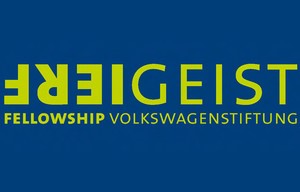1 PhD Position:
Silicate Ash Deposition in Gas Turbines: Munich, Germany
17.03.2017
The ‘volcanic ash vs. jet engines’ research group at the Ludwig-Maximilians-Universität (LMU) in Munich (Group leader Dr. Wenjia Song) is currently offering one doctoral studentship for 3 years on the study of the influence of silicate ash on gas engines. This position offers a remarkable opportunity to be part of a multi-disciplinary group working at the forefront of geosciences and aircraft material science today in a highly international environment. The world-class experimental Petrology and Volcanology Laboratory consists of top-quality facilities for volcanic hazard research, and we seek a highly motivated candidate to join our dynamic and growing team.
This position is part of a large research initiative on Volcanic Ash Deposition in Jet Engines (VADJEs) funded by the ‘Freigeist’ Fellowship of the Volkswagen Foundation in Germany and LMUexcellent Junior Researcher Fund and headed by Dr. Wenjia Song. The project aims to transcend the boundaries of different fields, blend concepts from chemical engineering and biometrics and deploy state of the art technologies from coal-combustion technologies, material sciences, and optical physics to provide a basis for the better mitigation of the effect of ash on gas turbines. This project is primarily experimental, and the successful applicant will employ a range of novel experimental and analytical techniques. They will also have the chance to gain experience in the communication of scientific research to the public in this high-profile field.
PhD Project: Thermo- dynamic and mechanical properties of silicate ash deposition in gas turbines.
Description: In gas turbines molten ash deposits are known to be a major problem affecting engine safety and efficiency. In aviation, natural ash in the atmosphere, whether these ash particles are volcanic in origin (i.e., volcanic ash) or terrestrial (e.g., desert sand and dust), may present a critical risk to jet engine safety. On land, the detrimental effects of coal ash, fly ash and biomass ash generated by combustion in land-based gas turbines include decreased efficiency, unscheduled outages, equipment failures, and high cleaning costs. In ocean-going vessels, ash derived from oil combustion (including crude oil, residual and ‘bunker fuel’) presents a significant threat to efficient turbine operation, as salt- and metal-rich ash formed from burning of liquid fuel oils leads to huge maintenance issues. Thermo- dynamic and mechanical properties of silicate ash strongly impact deposition characteristics in hot parts of gas turbines.
In this project, the doctoral student will experimentally investigate the fusion behaviour, rheological characteristics, and mechanical properties of different silicate natural ashes (involving volcanic ash, dust, sand, fly ash, coal ash, fuel ash and synthetic ash (i.e., CMAS)).
Required skills:
• This project requires one candidate with a background in geo- /material science and a reasonable knowledge of mathematics and statistics.
• The strong experimental skills to be applied in the rheological and mechanical analysis of silicate melts are required. Experimental practices on rotating cylinder viscometer and thermal mechanical analysis (TMA) are welcome. Experimental skills in thermal analysis and petrology of silicate melts as well as preparation of synthetic glasses are a plus.
• The candidate is expected to be a motivated team worker who fits into a multinational research environment. The candidate should independently perform the experimental tasks and enjoy working in a team as well as discussing their work with researchers from different scientific backgrounds and approaches. Confidence in spoken and written English is a requirement.
Application: Applications should include a CV, academic Bachelor and Master transcripts, contact information for 2 referees and a statement explaining how your research experience and academic knowledge relate to the project in general. Application should be sent as a single PDF-file to: Dr. Wenjia Song wenjia.song@lmu.de and Prof. Donald Bruce Dingwell dingwell@lmu.de. Review of applications has been started and will continue until the position is filled.







